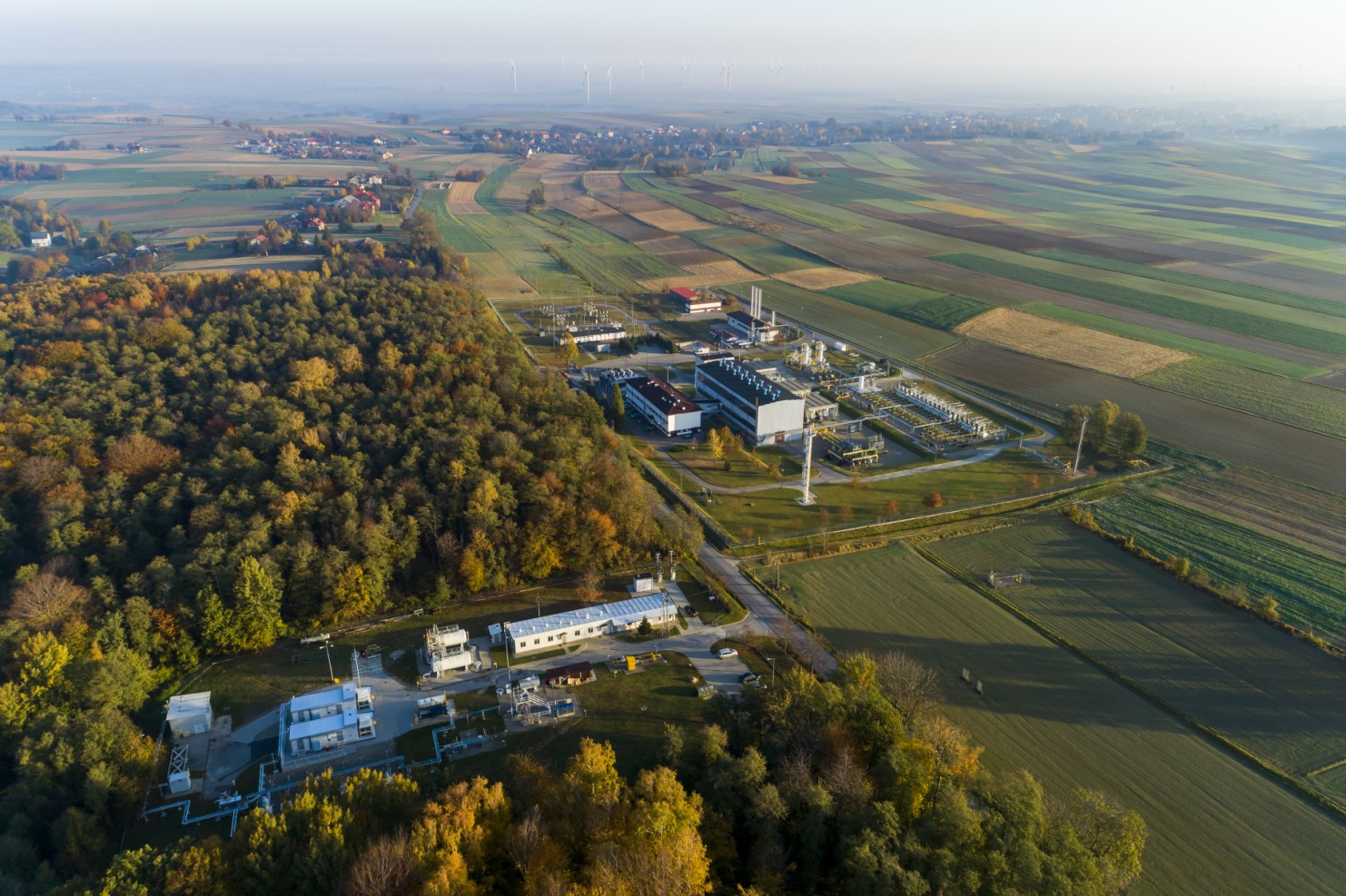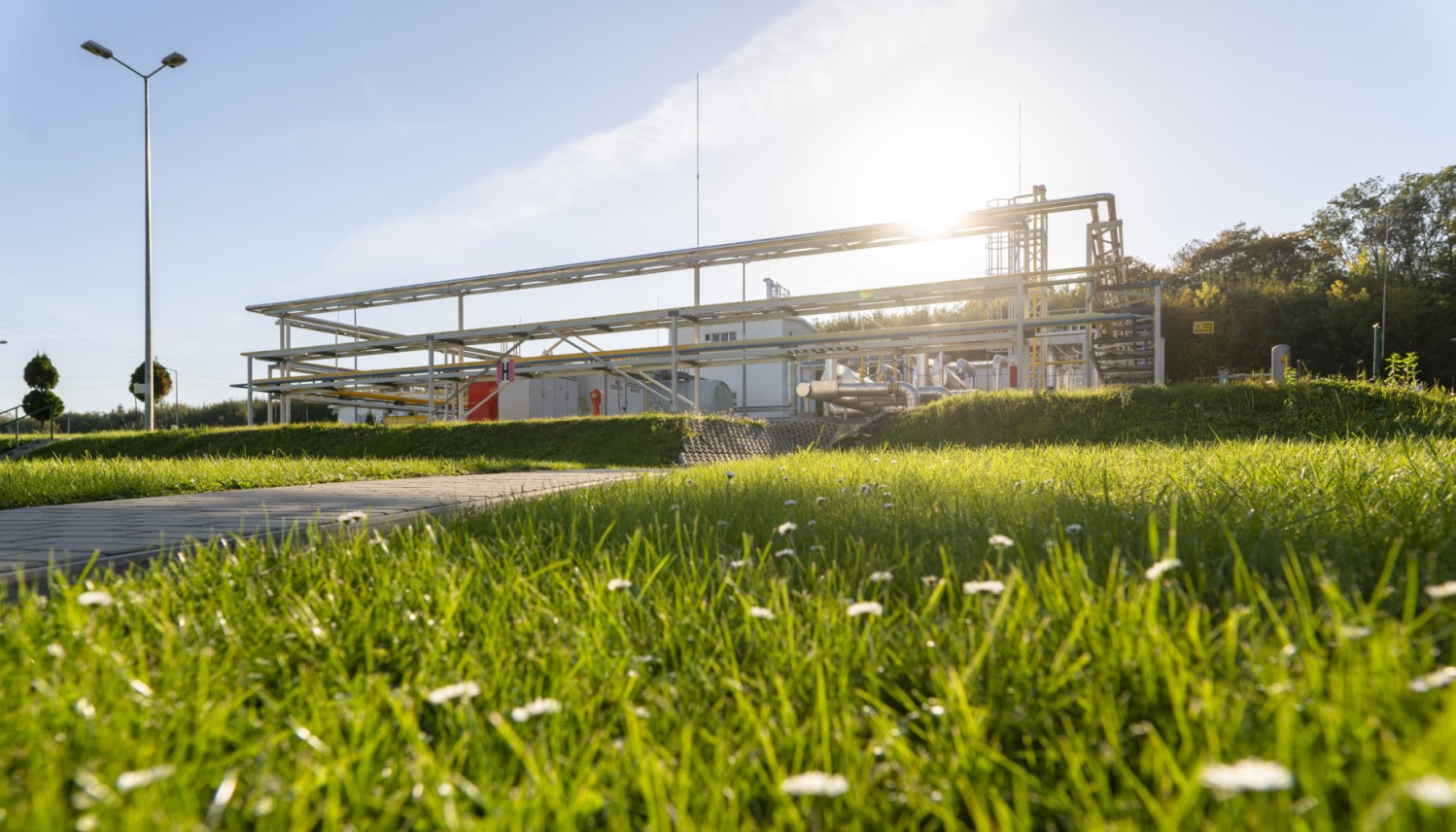- identifying, supervising and monitoring the environmental impacts of the companies’ operations (environmental aspects),
- identifying and complying with legal and regulatory requirements;
- setting and pursuing improvement goals to minimise external and environmental impacts and keep a balance between business growth and environmental protection,
- applying environmentally-friendly technologies,
- using fuels and natural resources in an efficient way,
- undertaking initiatives benefiting the environment (including remediation and reclamation),
- supervising contractor operations,
- raising employee awareness and qualifications in the area of environmental protection.

PGNiG Group’s key measures for climate and environmental protection
GRI Indexes
-
102-17
-
102-47
-
103-1
-
103-2
-
103-3
Well aware of the ongoing climate change, the PGNiG Group is takes steps to mitigate the human impact on climate and environment.
On the one hand, through constant improvement of technological processes, R&D activities and business decisions, PGNiG seeks to minimise the adverse impact of its operations on climate and environment. In doing so, PGNiG intends to reduce both direct CO₂ emissions from its operations, which occur during such processes as extraction of natural gas or production of heat and electricity at PGNiG plants (scope 1 CO₂ emissions in accordance with Greenhouse Gas Protocol), as well as indirect CO2 emissions from the production of electricity purchased by PGNiG for its own needs (scope 2 CO₂ emissions).
On the other hand, PGNiG, through its operations, is directly involved in Poland’s energy transition. For Poland, this transition is both particularly important and challenging as, owing to rich coal deposits, for the last century Poland’s energy sector relied almost exclusively on this energy carrier. In 2018, the benchmark year for Poland’s Energy Policy until 2040, the share of coal in electricity generation was as much as 77%. According to this government document, reducing the share of coal by 2030 to less than 56%, while simultaneously lowering CO2 emissions by 30% relative to 1990, will be largely effected by increasing in the energy transition the use of ‘transition fuel’, that is natural gas.
Switching from coal to gas is necessary not only to protect climate, but also to improve air quality in Poland. According to the authors of the ‘Clean Air’ government programme, each year around 45,000 people in Poland die of diseases caused by air pollution, more than seven times the number of those who die as a result of passive smoking. Smog is primarily caused by the accumulation of particulate matter, mainly produced from coal combustion in domestic furnaces and virtually absent in natural gas combustion. This is why in order to combat smog the Polish government has launched initiatives to stop burning coal in households in urban and rural areas by 2030 and 2040, respectively. Obsolete and inefficient coal-fired furnaces will therefore be replaced with low- and zeroemission ones. With a simultaneous expansion of the distribution infrastructure, natural gas will become an alternative to individual households and municipal heating systems alike.
In view of the above, the role of natural gas as a ‘transition fuel’ in Poland’s energy transition, helping reduce climate and environmental impacts, is critical today. As the largest player on the Polish gas market, for more than a decade PGNiG has not only supported the transition of Poland’s energy sector to make it more carbon-neutral, but has also been taking steps to consistently reduce its own negative impact on the ecosystem.
In 2021, PGNiG continued its efforts to protect the climate and the environment, undertaken at the beginning of 2020. The key initiatives include:
- April 2021 – Decision to invest in the construction of a 1 MWe solar farm at the Kawęczyn CHP plant (TERMIKA).
- June 2021 – Preparation of an application by TERMIKA in the area of hydrogen technologies and systems; submitted for further processing as part of IPCEIs. The main objective of the project is to develop an innovative and efficient green hydrogen production system (a large-scale unit of up to 50 MW) based on electricity generated by a cogeneration unit, and subsequently use the hydrogen in transport so as to significantly cut greenhouse gas (“GHG”) emissions in the fuel supply chain. There are also plans to use the hydrogen on a large scale in urban transport, especially buses.
- December 2021 – Launch of a CCGT unit at the Żerań CHP plant (TERMIKA), which replaced five coal-fired units, thus reducing carbon dioxide emissions. Since 2016, nine out of the eleven coal-fired units have been thus shut down at the Żerań CHP plant. The investment is part of the project to upgrade the CHP plant supplying heat and power to Poland’s capital city. The unit, intended to facilitate a “smooth transition towards achieving climate neutrality”, is also to be fuelled with green hydrogen and biogas in the future.
Due dilligence policies and procedures
-
102-11
-
GOV-2/A2
Following the principles of sustainability and respect for the environment are part of the QHSE Policy. Competence of the management staff and appropriate preparation of the workforce translate into improved environmental performance and delivery of the Policy objectives.
The PGNiG Group’s operations affect the natural environment along the entire value chain. Considering the global environmental challenges related to climate change, rational management of natural resources and circular economy, the PGNiG Group takes steps to minimise its environmental impacts.
- implement, maintain and improve the environmental management system as a tool for implementing the QHSE Policy across the PGNiG Group,
- use environmentally-friendly technologies and techniques reducing emissions and waste and wastewater output, and enabling efficient use of natural resources in order to meet new challenges, including those presented by circular economy,
- ensure that the PGNiG Group’s suppliers and contractors comply with the highest environmental protection standards and use environmentally friendly technologies and solutions,
- design, execute and participate in research projects on new technologies to improve the environmental and economic performance of work carried out by the PGNiG Group,
- protect biodiversity in operations affecting protected habitats and species,
- minimise the PGNiG Group’s environmental impact through land reclamation (including with regard to past operations and the related historical contamination),
- conduct promotional and awareness campaigns for customers who are switching to gas fuel in their heating systems.

